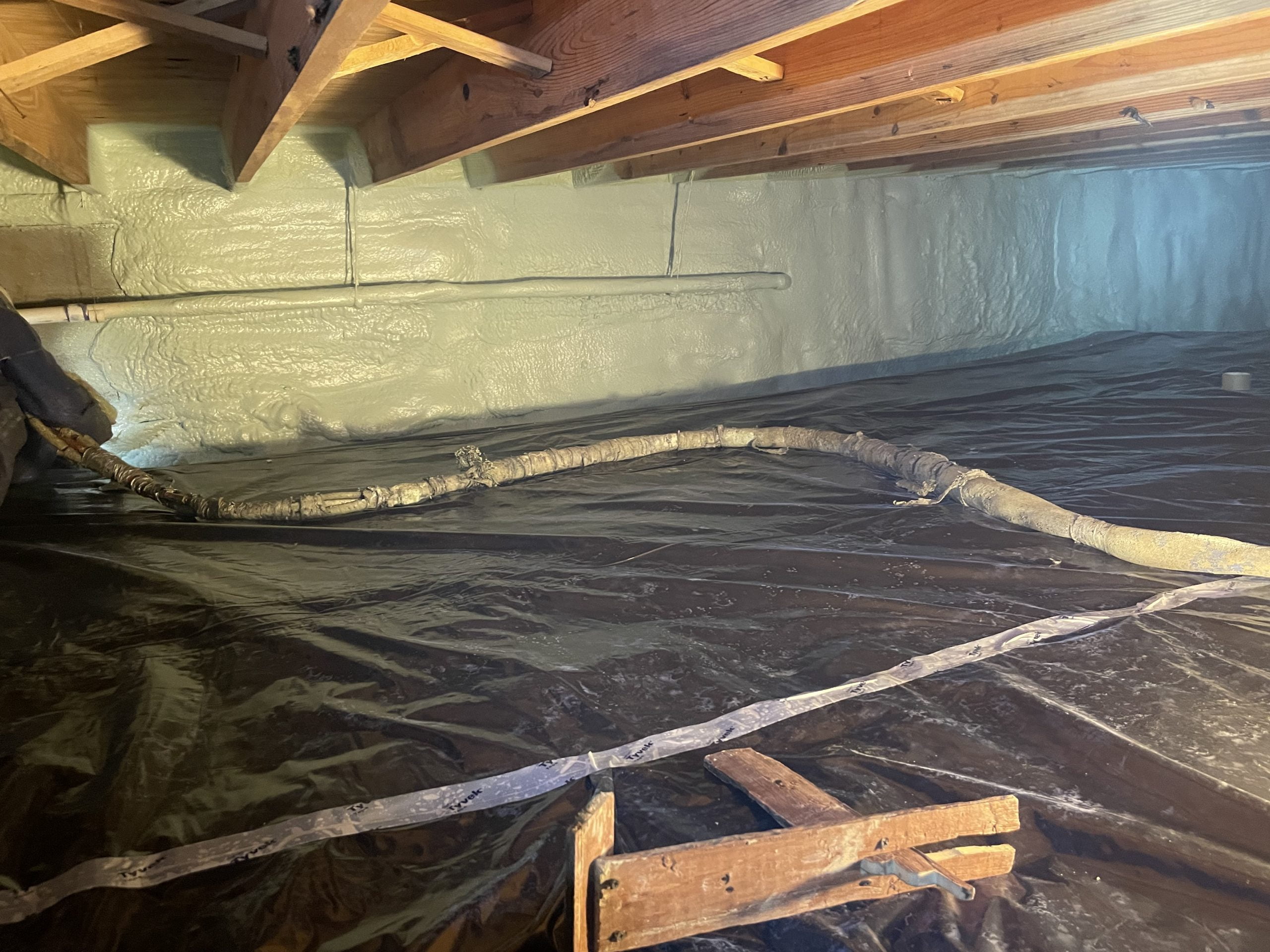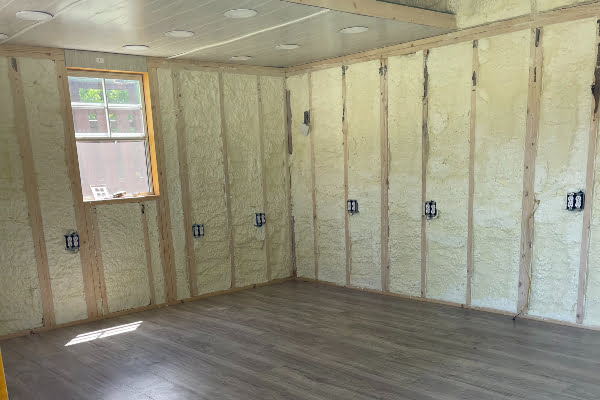When it comes to energy efficiency and temperature regulation in houses, insulation plays a crucial role. With a myriad of insulation options available, it’s quite easy to find yourself at a crossroads. One insulation material that has been making waves in recent times is spray foam insulation. But, is embracing this method worth your dime and time? Let’s take a closer look.
Understanding Spray Foam Insulation
Spray foam insulation is one of the most efficient insulation materials available today. It’s made by combining polyurethane resins with foaming agents to create a product that can expand 30-60 times its liquid volume after application. This expansion allows the foam to fill cracks and crevices that other insulations cannot reach.
What is Spray Foam Insulation?
Spray foam insulation is made by mixing diisocyanates, polyols, and blowing agents together under high pressure. It comes in two main types: open-cell and closed-cell foam.
Different Types of Spray Foam Insulation: Open-Cell vs Closed-Cell
Open-cell spray foam has a low density and is permeable to moisture flow. It is often used for interior applications and provides good acoustical insulation. Open-cell foam is soft and has an R-value of around R-3.5 per inch.
Closed-cell spray foam has a high density and creates an air barrier that stops drafts and moisture infiltration. It is commonly used for exterior applications and has an R-value of around R-7.4 per inch, making it one of the most thermally efficient insulations available.
How is Spray Foam Insulation Installed?
Spray foam insulation is installed by professional contractors using special equipment to mix and spray the foam. The process involves:
- Preparing the area by sealing any cracks and covering surfaces not meant to be insulated.
- Spraying the components onto the installation area, where the mixture expands and hardens.
- Trimming away any excess foam once fully cured.
The foam adheres and molds to all surfaces, insulating regularly shaped and oddly shaped cavities. This makes it highly effective for attics, crawl spaces, walls, and more.
The Benefits of Spray Foam Insulation
Higher Energy Efficiency
The main benefit of spray foam insulation is improved energy efficiency. The high density and expansive nature of the foam allow it to form an air seal that minimizes heat loss/gain and drafts.
According to the Department of Energy, homes insulated with spray foam can be over 50% more efficient than those with traditional fiberglass insulation. Spray foam helps lower monthly energy bills while making homes more comfortable.
Superior Insulation Against Air and Moisture Infiltration
Spray foam insulation resists heat flow and forms an airtight barrier better than other types of insulation. The expansive foam seals cracks, gaps, and penetrations that allow conditioned air to escape.
Moisture in the form of water vapor can pass through most insulations and condense inside walls or attics. Spray foam is semi-permeable to water vapor, slowing this process. It protects against mold growth and deterioration.
Enhancing Structural Integrity and Durability
Closed-cell spray foam adds rigidity and strength to wall assemblies when installed properly. The foam adheres tightly to framing and sheathing, stiffening the structure.
The airtight and semi-permeable qualities protect against air and moisture damage for the long term. Spray foam does not degrade or settle over time like some other insulations. Proper installation by a qualified professional is key to gaining these benefits from spray foam insulation.
Spray Foam Insulation and its Impact on Property Value
Upgrading your home’s insulation can also increase property value. Homebuyers are looking for energy-efficient features like spray foam insulation. This material seals air leaks and prevents moisture issues that could otherwise lead to expensive repairs.
One study found that homes with spray foam insulation sold for 3.5% more than comparable homes without it. Installing spray foam allows you to recoup some of that initial investment when it comes time to sell your home.
Making the Decision: Is Spray Foam Insulation Right for You?
When it comes to insulating your home, spray foam insulation is one of the most effective options available today. Spray foam can provide superior insulation and air sealing compared to traditional insulation materials like fiberglass batts. However, spray foam comes at a higher initial cost that may not make financial sense for every homeowner.
As you consider whether spray foam is the right choice for your home, here are some key factors to weigh:
Assessing Your Home’s Insulation Needs
First, examine your home’s existing insulation. If there are gaps, air leaks, or little to no insulation in places like the attic, walls, and basement, then spray foam may be a smart investment. Spray foam excels at insulating odd-shaped cavities and sealing cracks that allow air infiltration.
Also, look at your energy bills. High heating and cooling costs can indicate insufficient insulation. Upgrading to spray foam may pay for itself over time through energy savings.
Home age is another consideration. Older homes often lack proper insulation compared to new construction. Filling those gaps with spray foam can make a dramatic difference in comfort and energy efficiency.
Comparing Alternatives: Spray Foam vs Traditional Insulation Materials
Fiberglass batts have been a popular insulation material for decades thanks to their low cost. However, they are less effective than spray foam at stopping air leaks and insulating irregular spaces. The fibers can also settle over time, creating gaps.
Blown-in fiberglass provides better coverage than batt insulation but still comes with air leakage issues.
Rigid foam boards made of polyisocyanurate or extruded polystyrene (XPS) have higher R-values than fiberglass and cellulose. Foam boards work well for exterior sheathing, but cannot match the seamless air sealing of sprayed-in-place foam.
Spray foam insulation offers maximum R-values up to R-7.4 per inch. It adheres seamlessly to odd-shaped cavities and seals cracks and gaps as it cures. This combination of insulation and air sealing is hard to match with other types of insulation.
Trust Cincinnati RetroFoam for Spray Foam Insulation
When it comes to spray foam insulation in Cincinnati homes and buildings, there’s one company you can trust – Cincinnati RetroFoam.
As a local company rooted in Cincinnati, we understand our climate, older housing stock, and the benefits spray foam can offer. We offer top-quality open and closed-cell foam solutions to match your project. This leads to optimal energy efficiency and comfort improvements. From start to finish, you can rely on our team of seasoned professionals to implement spray foam insulation right. We take care of assessing your existing insulation, determining ideal spray points, and installing the foam throughout cavities.
If you’re looking to upgrade your home’s insulation with spray foam, look no further than the experts at Cincinnati RetroFoam. Our tailored solutions, outstanding service, and results you can count on make us the smart choice for foam insulation.
FAQs
Is spray foam insulation as good as regular insulation?
Spray foam insulation can be as effective as traditional insulation materials like fiberglass batts when installed properly. The key benefits of spray foam insulation are that it air seals and insulates at the same time. When installed correctly, the foam expands and seals all cracks and gaps as it hardens, preventing air leaks that reduce insulation effectiveness.
How messy is spray foam insulation?
Spray foam insulation can be messy to install by yourself if proper precautions are not taken. But as long as professional installation services are used, the installation process can be clean and controlled.
Is spray foam insulation worth having?
Spray foam insulation provides good insulation and air-sealing properties when properly installed. The higher upfront cost is worth it for homeowners who want maximum energy efficiency and noise reduction. Factors like your climate zone, utility costs, and goals for efficiency and comfort should be considered when deciding if spray foam is the right insulation choice for your home. Proper installation is also key to getting the full benefits.


